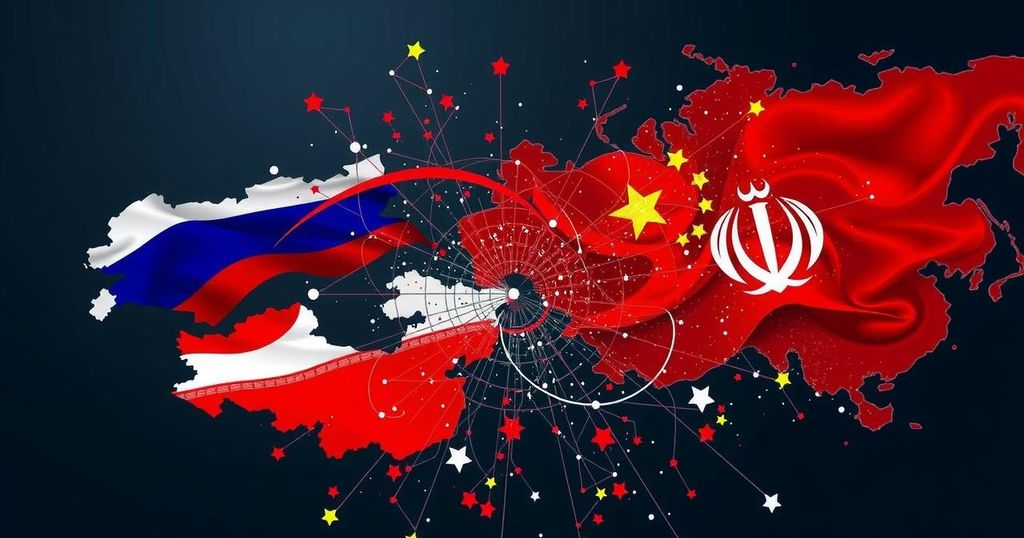NATO Secretary General Mark Rutte warns that Russia’s increasing ties with China, Iran, and North Korea pose threats to global security, particularly for Europe, the Indo-Pacific, and North America. He stresses the necessity for continued support for Ukraine amidst concerns about potential shifts in U.S. policy. Emmanuel Macron emphasizes the importance of sending aid to Ukraine and ensuring Ukrainian involvement in future negotiations.
NATO’s Secretary General, Mark Rutte, has raised alarm over Russia’s expanding military and economic partnerships with China, North Korea, and Iran, which he believes jeopardize security across multiple regions, including Europe, the Indo-Pacific, and North America. In discussions with French President Emmanuel Macron, Rutte emphasized the necessity of transatlantic unity and unwavering support for Ukraine against Russian aggression. He voiced particular concern regarding military assistance from North Korea and Iran to Russia and noted China’s integral role in bolstering the Russian economy and defense capabilities. The potential shifts in U.S. policy under President-elect Donald Trump, who has previously critiqued Western backing of Ukraine, have heightened anxieties within European capitals regarding future commitments to Ukraine’s defense. As the conflict in Ukraine intensifies, Kyiv is focused on securing essential weaponry to maintain its resistance against Russian advances. Rutte urged allied nations to increase their support to alter the current dynamics of the war, reiterating that higher costs must be imposed on President Putin for his military actions. Macron echoed this sentiment, committing to continuous assistance for Ukraine, stressing that future decisions regarding Ukraine must involve Ukrainian leaders and European nations. The report underlines the geopolitical complexities facing Europe amidst a rapidly shifting alignment of powers in the wake of the ongoing conflict in Ukraine.
The commentary by NATO Secretary General Mark Rutte highlights critical geopolitical dynamics wherein Russia’s alliances, particularly with China, North Korea, and Iran, could reshape security considerations on a global scale. This cooperation not only endangers Ukrainian sovereignty but also reflects broader implications for international stability. The concerns over these partnerships are compounded by uncertainties regarding U.S. foreign policy under the incoming administration and its potential impact on transatlantic relations and security commitments to Europe, especially in light of ongoing military conflicts.
In conclusion, NATO Chief Mark Rutte’s warnings about the military and economic ties between Russia and authoritarian regimes highlight significant threats to global peace and security. The implications of these relationships extend beyond Europe, challenging the stability of the Indo-Pacific and North America as well. As ongoing conflicts intensify, the support and unity among NATO allies become paramount in resisting aggressive actions and ensuring comprehensive assistance for Ukraine, reaffirming the commitment of European leaders to countering potential threats from this evolving geopolitical landscape.
Original Source: www.usnews.com






